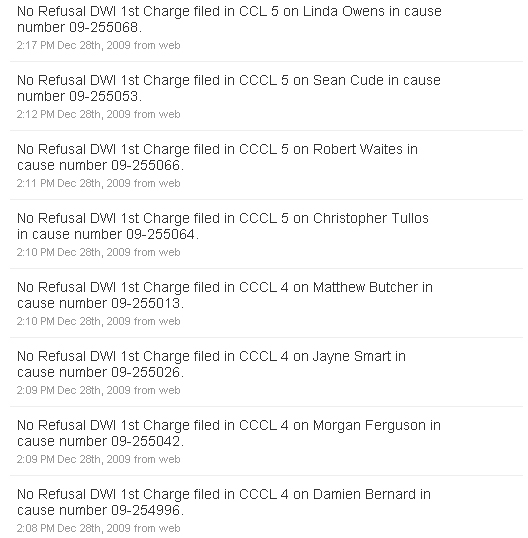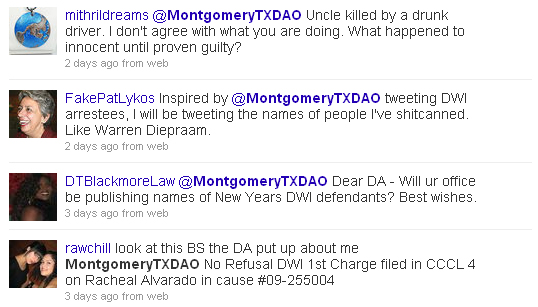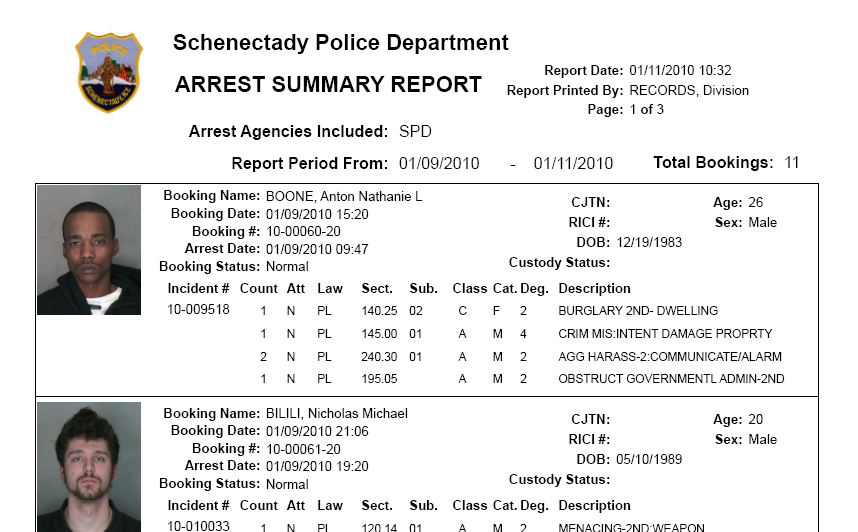Social networking sites are great for meeting new people and having some fun, but don’t let that fun kill your career.
Dean Scoville is Associate Editor of Police Magazine and a retired patrol supervisor and investigator with the Los Angeles Sheriff’s Department. Sgt. Dean Scoville has received multiple awards for government service. This article was previously published at policemag.com.
Cops, like any other members of a high-stress profession, like to joke around about what happens at work. Many of these jokes would be considered crude or insensitive, perhaps even slanderous, by people who don’t work as police officers. But as long as the public doesn’t hear these jokes then the attitude of most administrators is no harm, no foul.
Unfortunately, such cop jokes are now being voiced in public. A generation ago, when cops wanted to blow off steam, they met some place private, had a few beers, and nobody outside the circle knew what was said or done.
 Today’s cops may still gather over a case of cold beer, but they also gather online using social networking tools such as MySpace and Facebook. Which is a problem for agencies and officers because what many users of social networks don’t realize before its too late is that anything they do or say or write on these sites is done so in full view of the public. Other officers may be aware that they are speaking in public, but they apparently don’t care.
Today’s cops may still gather over a case of cold beer, but they also gather online using social networking tools such as MySpace and Facebook. Which is a problem for agencies and officers because what many users of social networks don’t realize before its too late is that anything they do or say or write on these sites is done so in full view of the public. Other officers may be aware that they are speaking in public, but they apparently don’t care.
The Cromer Case
Perhaps the most widely known example of an officer coming to grief because of something that he or she wrote on a social networking site happened three years ago in Kentucky.
In 2006 Officer Joshua Cromer of the Lexington Police Department made a traffic stop. The driver was country singing star John Michael Montgomery who lives nearby. Cromer arrested Montgomery and the singer was later charged with driving under the influence, possessing a controlled drug, and two counts of carrying a concealed deadly weapon. Montgomery later pleaded out on the drunken-driving charge. That should have been the end of the matter.
Unfortunately for Cromer, that traffic stop was just the beginning of a long nightmare. The arrest became fodder for Cromer’s MySpace page. Friends, mostly fellow cops, congratulated him on the bust and poked fun at Montgomery by posting a doctored photo that showed Cromer as an adoring fan.
Complaints about Cromer’s site led to the brass checking out a number of their officers’ MySpace pages. What they found made them really angry. There were comments about the department, comments about the people of Lexington, comments about gays, and comments about the mentally disabled. And a very brown and very smelly storm gathered over the heads of Cromer and several other Lexington PD officers.
Cromer was dismissed from the Lexington PD on grounds of misconduct, inefficiency, insubordination, and conduct unbecoming a police officer. He later sued for back pay and reinstatement. He lost. As for the other members of Cromer’s MySpace circle of friends, five of them were suspended. They were later allowed to return to duty.
Chief Concerns
The Cromer case is a clear example of an employer’s ability to monitor an employee’s online social network activity even away from the job. It also illustrates the power that an agency has over its officers’ ability to exercise free speech.
For law enforcement officers, other public officials, and even private employees, caution should be the byword when posting material on a social networking site. And make no mistake, many agencies are monitoring what their officers do online.
These agencies know there is a potential for an employee’s Website comment to become instrumental in a civil or even criminal case. Defense attorneys and civil rights attorneys are monitoring what you write on your private pages the same way that police investigators monitor the sites of criminals. So use your brain. If you don’t want your comments read in public, don’t post them in public.
And whatever you do, don’t maintain your Facebook page on the job. An Indiana State Trooper found himself under investigation for his online activity both off and on the job.
A born multitasker, this trooper allegedly bragged about his heavy drinking, posted a picture of his cruiser with collision damage and the caption “Oops! Where did my front end go?” and uploaded an image of a gun being pointed at his head. On the same Facebook page, he reportedly characterized himself as a “garbage man,” saying, “I pick up trash for a living.” Statements reflecting dissatisfaction with weather and working conditions were also allegedly posted during times that the trooper was supposed to be at work.
When a TV news report revealed the evidence to state patrol brass, they launched an internal investigation. At presstime, the findings of that inquiry have not been released.
With Friends Like These
The nature of social networking sites, which link users to hundreds-even thousands-of online friends, can also make them particularly hazardous for your career. Just ask Officer John Nohejl of the New Port Richey (Fla.) Police Department.
By all accounts, Nohejl accomplished great things during his three years as a school resource officer, turning a D school around into an A school in one year. Well liked by the kids and school staff, Nohejl came up with the idea of setting up a MySpace page to communicate with students. School leaders, parents, and the police department were enthusiastic about the idea. In a relatively short period of time, Nohejl was not only able to share safety tips with students via the new “Officer John” site but also obtain tips that expedited investigations and resulted in arrests.
But then he found himself in a peck of trouble.
An anonymous complainant advised the department that one of Nohejl’s MySpace “friends” offered a link that included photos of nude women. Another offered obscene comments about oral sex and large breasts, among other objectionable content-all of which could be easily navigated to by 11- to 14-year-old students visiting Nohejl’s page.
Now the links are gone, but the sting of the experience still lingers for Nohejl.
“I tried to do a good thing for kids,” Nohejl reflects. “But I got blind-sided. I’d checked out this person’s profile and it seemed OK, so I allowed him on as a friend. But once I did that, he went back onto MySpace and maliciously changed his profile so that in a matter of three clicks from my page, kids could be exposed to this pornography. I was railroaded-not by the department, but by the person who orchestrated this mess.”
The Florida attorney general’s cybercrime task force investigated the Nohejl case. Nohejl was cleared of any wrong-doing. Unfortunately, a collateral casualty was the Officer John MySpace account. “The moment this problem was brought to light, they immediately removed it,” Nohejl says.
Back on patrol these days, Nohejl hopes that others learn from his experience. “It’s a good lesson for cops. You can be held responsible for things that are beyond your control,” Nohejl says. “Who can possibly go through the profiles of hundreds of MySpace friends every day to make sure that someone’s not going to do the same thing again?”
Etiquette and Policy
Concerns about such sites go beyond objectionable material or technological access by hackers. By piecing together information about companies through their employees’ social network entries, identity thieves and others have been able to trick people into allowing confidential information beyond intended audiences.
Consequently, many agencies feel under pressure to establish some form of social networking etiquette or protocol for their employees. As a result, some agencies are just telling their employees to stay off Facebook and similar sites.
Former police officer, academy instructor, and network security author Deb Shinder suspects that until some new legal precedent dictates otherwise, agencies may have the upper hand in this equation.
“Unless there is state law or a union contract that says otherwise, [police departments] can be pretty much as stringent as they want to, as long as the policies are applied equally and without discrimination,” Shinder says.
But can your employer really tell you what you can and can’t do with your own computer on your own time?
Maybe. “Off-duty activities on one’s own computer are more of an issue of contention,” explains Shinder. “But even if the agency doesn’t have a policy specifically addressing online behavior, certain online activities–especially if the person’s profile and social networking posts are open to the public–could probably be construed to fall under general ‘conduct unbecoming’ regulations.”
Nonetheless, Shinder believes that agencies would be ill advised to prohibit their officers from enjoying the benefits of social networking online. “Young people who grow up with social networking as part of their lives aren’t going to take well to being told they can’t do it anymore, and law enforcement will lose way too many potential good cops if they take a hard line on that,” she explains.
Given that social networking is here to stay and young cops believe they have a fundamental right to use these sites, smart agencies are going to have to find a way to regulate what officers do online without being too restrictive.
“I think it makes more sense to cautiously embrace the technology, to set policies that are reasonable, and to educate officers about what does and doesn’t constitute professional online behavior and more importantly, why their online behavior matters, why it’s in their own best interest, not just that of the agency, for them to project a public image that they won’t cringe over a few years down the line when they’re trying to move up the career ladder,” says Shinder.
Some agencies are adding online social network regulations to their policy manuals.
For example, the Indiana State Police is in the process of drafting standard operating procedure for its staff regarding posting information on personal Web pages such as Facebook. And in Salt Lake City, Sgt. Robin Snyder, a public relations officer with the city police, is currently researching laws and other department policies toward formulating a policy for her department.
Others have already set their policies. The Minneapolis Police Department adopted a policy in October that prohibits its police officers from identifying themselves as such on social networking sites.
Officer Reaction
The implementation of such policies has taken some cops aback.
“Cops are not only being held to higher standards,” notes one Massachusetts police officer, “but in some cases, unreasonable standards.”
Many officers say the “do as I say, not as I do” posture of some agencies is especially annoying, as their employers and commanders see themselves uniquely capable of maintaining professional online content. Others say they don’t appreciate the interference in their personal lives.
“It’s like freedom of speech, apparently there are some who think you should be able to tell a cop to go expletive himself without repercussion and yet they also believe that a cop should be disciplined for using any profanity (called command presence when I write my report or testify in court). Shouldn’t then a social network profile be freedom of speech?” asked one officer.
And while many officers understand the impetus for anti-social networking policies, they still resent them.
“It’s all about liability. We have enough of that stuff already as cops, I’m not giving anyone another weapon to try and take my job away.”
Use Common Sense Online
Salt Lake City PD’s Snyder can only shake her head when she contemplates some of the trouble cops have gotten themselves in behind social networks.
“It seems that police officers have more common sense when it comes to using their gun in the field if they have to,” Snyder notes. “When they go into a restaurant, they know to sit with their back to the wall, they know if something happens where their escape routes are. But they never think about if they post something on Facebook. Are they going to offend somebody racially or by sexual orientation? They never think about that kind of stuff. Officers should know better than to post certain things on Facebook.”
To this end, Snyder tries to pick up the slack.
“I teach a media relations class to the recruits,” Snyder says. “I’ve added social media to tell them that they’re no longer anonymous. I ask how many people have Facebook accounts, and I tell them they have to think about if they post something and their local news media picks it up. There’s no official social networking training, but I see it coming within the next year.”
Shinder offers the following pointers when engaging in social networking: “Don’t post pictures of yourself doing something embarrassing or illegal. Don’t make derogatory comments about any race or group. Don’t post comments that could be construed as sexually harassing, especially if you have co-workers or subordinates of the opposite gender as ‘friends.’ It’s also probably a good idea not to get into passionate diatribes about agency politics.”
It is also important to point out that your friends not only see what you post on your site, but also what your other friends post there. “That’s another reason to separate your professional and personal lives by having more than one Facebook or MySpace account,” asserts Shinder.
Most sites do let you set options regarding which of your friends can see what types of posts, and it’s a good idea to become very well acquainted with how these tools work and use them.
Sam Walker, a retired professor and a former member of the National Board of the American Civil Liberties Union, suggests that a simple disclaimer by the employee may protect many officers from earning the ire of their departments.
In the absence of policies developed to specifically address social networks, many agencies have and will probably continue to flag their personnel under some generic catch-all: Conduct unbecoming a peace officer. But they will address it.
Curiously, none will come near to invoking the caveat most invoked in matters of law enforcement concern: Use common sense.
For in matters of social intercourse, there is little commonly agreed upon and what may be acceptable to one person or group may well be unacceptable, even offensive, to another.
In the meantime, it would appear that some agencies are hoping that by adopting more rigid postures, they might wear their employees down so that they’ll take a note from the Gershwin song when it comes to posting to social networks and just call the whole thing off.
 Right then, it appears we have caused a bit of a stir by saying that we are thinking about having somebody in post to try and expand our use of social media. The interview, given by Assistant Chief Constable Scobbie, has been widely reported as West Midlands Police employing a ‘Cyber Cop’ type person.
Right then, it appears we have caused a bit of a stir by saying that we are thinking about having somebody in post to try and expand our use of social media. The interview, given by Assistant Chief Constable Scobbie, has been widely reported as West Midlands Police employing a ‘Cyber Cop’ type person.












